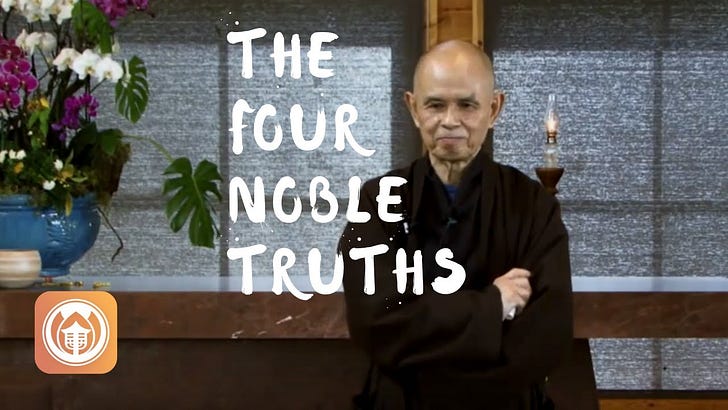Suffering and Salvation: Understanding the Four Noble Truths of Buddhism
The Four Noble Truths were the key insights and first teachings of the Buddha.
The Four Noble Truths are foundational teachings in Buddhism, expounded by Siddhartha Gautama, known as the Buddha. They form the core of Buddhist philosophy and provide a framework for understanding the nature of suffering and the path to liberation.
Below are links to detailed examinations of each of these truths, together with meditations upon them intended to deepen your understanding.
The Truth of Suffering (Dukkha):
The First Noble Truth acknowledges the existence of suffering or unsatisfactoriness (dukkha) in human life. It encompasses physical and emotional pain, dissatisfaction, and the general difficulties and challenges of existence.
The Truth of the Cause of Suffering (Samudaya):
The Second Noble Truth identifies the root cause of suffering, which is craving, attachment, and desire (tanha). It suggests that our attachments and desires lead to suffering because they are insatiable and temporary.
The Truth of the Cessation of Suffering (Nirodha):
The Third Noble Truth points to the possibility of the cessation of suffering. It teaches that by eliminating craving and attachment, one can attain a state of inner peace, contentment, and liberation from suffering. This state is referred to as Nirvana.
The Truth of the Path to the Cessation of Suffering (Magga):
The Fourth Noble Truth outlines the Eightfold Path (or Noble Eightfold Path), which is the practical guide or path that leads to the cessation of suffering. It consists of ethical and mental practices that include right understanding, right intention, right speech, right action, right livelihood, right effort, right mindfulness, and right concentration.
In essence, the Four Noble Truths teach that suffering is a fundamental aspect of life, but it is possible to overcome it by understanding its causes, eliminating attachment and desire, and following the Eightfold Path to attain a state of liberation and enlightenment known as Nirvana.
These teachings are central to Buddhist practice and philosophy, guiding practitioners in their pursuit of inner peace and spiritual awakening.






